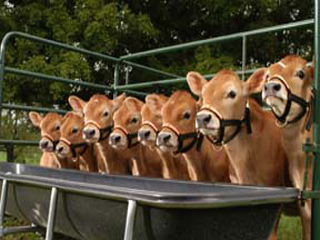Four years ago, US food safety group, the Food and Drug Administration approved the consumption of meat and milk from cloned cows, pigs and goats. Since then, many people have taken different stances on this hot debate.
Sioux Centre in Iowa has been working on cloned cattle and produces up to 100 clones calves a year. Produced by Trans Ova Genetics, the company does not only produce calves but also pigs and horses. Since Dolly the Sheep (the first cloned animal) in 1996, many scientist have taken interest in this new endeavor but it has been an issue for the public. This method seems like something that comes straight out of a science fiction book and people still have trouble putting their faith in this method. Also, the advanced technology raised ethical concerns because it deviates from normal reproduction that marries genetic material from two parents.
US authorities believe that the Food and Drug Administration made a mistake by not regulating it, and allowing consumption of cloned meat before long-term studies of its impact on human health. Even though cloned animals were approved, people still have doubts about this new method of production
Even though the US food safety group passed the laws, the European Commission proposed a ban on cloning of animals used for food and their imports last December. The commission, however, did not seek a ban on the sale of products from the descendants of cloned animals or insist on the traceability of their origin, actions that were pushed by the European Parliament. The EU would be going backwards if they forbade that.
Click here for more details.
